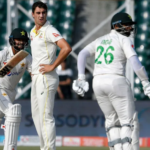From the depths of despair to the towering heights of glory, there is no better story than the incredible evolution of the France National Football Team. Through years of challenges and setbacks, this sensational squad has defied all odds, emerging as an unstoppable force on the international stage. Join us on a thrilling journey through time as we uncover how Les Bleus transformed themselves from underdogs to world champions, inspiring a nation and capturing hearts around the globe. Get ready to witness their breathtaking rise from ashes as we delve into their captivating tale – one that proves dreams can truly come true in the realm of football.
| Nickname | Les Bleus (The Blues) | |||||||||||||||||||||||||||||||||||||||||||||||||||||||||||||||||||||||
|---|---|---|---|---|---|---|---|---|---|---|---|---|---|---|---|---|---|---|---|---|---|---|---|---|---|---|---|---|---|---|---|---|---|---|---|---|---|---|---|---|---|---|---|---|---|---|---|---|---|---|---|---|---|---|---|---|---|---|---|---|---|---|---|---|---|---|---|---|---|---|---|---|
| Association | Fédération Française de Football (FFF) | |||||||||||||||||||||||||||||||||||||||||||||||||||||||||||||||||||||||
| Confederation | UEFA (Europe) | |||||||||||||||||||||||||||||||||||||||||||||||||||||||||||||||||||||||
| Head coach | Didier Deschamps | |||||||||||||||||||||||||||||||||||||||||||||||||||||||||||||||||||||||
| Captain | Kylian Mbappé | |||||||||||||||||||||||||||||||||||||||||||||||||||||||||||||||||||||||
| Most caps | Hugo Lloris (145) | |||||||||||||||||||||||||||||||||||||||||||||||||||||||||||||||||||||||
| Top scorer | Olivier Giroud (54) | |||||||||||||||||||||||||||||||||||||||||||||||||||||||||||||||||||||||
| Home stadium | Stade de France | |||||||||||||||||||||||||||||||||||||||||||||||||||||||||||||||||||||||
| FIFA code | FRA | |||||||||||||||||||||||||||||||||||||||||||||||||||||||||||||||||||||||
| FIFA ranking | ||||||||||||||||||||||||||||||||||||||||||||||||||||||||||||||||||||||||
| Current | 2 (26 October 2023) | |||||||||||||||||||||||||||||||||||||||||||||||||||||||||||||||||||||||
| Highest | 1 (May 2001 – May 2002, August–September 2018) | |||||||||||||||||||||||||||||||||||||||||||||||||||||||||||||||||||||||
| Lowest | 26 (September 2010) | |||||||||||||||||||||||||||||||||||||||||||||||||||||||||||||||||||||||
| First international | ||||||||||||||||||||||||||||||||||||||||||||||||||||||||||||||||||||||||
| Belgium 3–3 France (Uccle, Belgium; 1 May 1904) |
||||||||||||||||||||||||||||||||||||||||||||||||||||||||||||||||||||||||
| Biggest win | ||||||||||||||||||||||||||||||||||||||||||||||||||||||||||||||||||||||||
| France 10–0 Azerbaijan (Auxerre, France; 6 September 1995) |
||||||||||||||||||||||||||||||||||||||||||||||||||||||||||||||||||||||||
| Biggest defeat | ||||||||||||||||||||||||||||||||||||||||||||||||||||||||||||||||||||||||
| Denmark 17–1 France (London, England; 22 October 1908) |
||||||||||||||||||||||||||||||||||||||||||||||||||||||||||||||||||||||||
| World Cup | ||||||||||||||||||||||||||||||||||||||||||||||||||||||||||||||||||||||||
| Appearances | 16 (first in 1930) | |||||||||||||||||||||||||||||||||||||||||||||||||||||||||||||||||||||||
| Best result | Champions (1998, 2018) | |||||||||||||||||||||||||||||||||||||||||||||||||||||||||||||||||||||||
| European Championship | ||||||||||||||||||||||||||||||||||||||||||||||||||||||||||||||||||||||||
| Appearances | 10 (first in 1960) | |||||||||||||||||||||||||||||||||||||||||||||||||||||||||||||||||||||||
| Best result | Champions (1984, 2000) | |||||||||||||||||||||||||||||||||||||||||||||||||||||||||||||||||||||||
| Nations League Finals | ||||||||||||||||||||||||||||||||||||||||||||||||||||||||||||||||||||||||
| Appearances | 1 (first in 2021) | |||||||||||||||||||||||||||||||||||||||||||||||||||||||||||||||||||||||
| Best result | Champions (2021) | |||||||||||||||||||||||||||||||||||||||||||||||||||||||||||||||||||||||
| CONMEBOL–UEFA Cup of Champions | ||||||||||||||||||||||||||||||||||||||||||||||||||||||||||||||||||||||||
| Appearances | 1 (first in 1985) | |||||||||||||||||||||||||||||||||||||||||||||||||||||||||||||||||||||||
| Best result | Champions (1985) | |||||||||||||||||||||||||||||||||||||||||||||||||||||||||||||||||||||||
| FIFA Confederations Cup | ||||||||||||||||||||||||||||||||||||||||||||||||||||||||||||||||||||||||
| Appearances | 2 (first in 2001) | |||||||||||||||||||||||||||||||||||||||||||||||||||||||||||||||||||||||
| Best result | Champions (2001, 2003) | |||||||||||||||||||||||||||||||||||||||||||||||||||||||||||||||||||||||
|
Medal record
|
||||||||||||||||||||||||||||||||||||||||||||||||||||||||||||||||||||||||
Introduction: The History and Legacy of the France National Football Team
Introduction:
The France National Football Team, also known as Les Bleus, is one of the most successful and iconic teams in the history of international football. Founded in 1904, this team has a long and illustrious history filled with triumphs, disappointments, and unforgettable moments.
In this section, we will delve into the rich history and legacy of the France National Football Team, exploring their journey from despair to glory and how they have evolved over the years to become one of the most dominant forces in world football.
Early Years:
The early years of the France National Football Team were marked by struggle and hardship. Despite being one of the founding members of FIFA, they did not participate in their first World Cup until 1930 due to financial constraints. It was not until 1938 that they made a significant impact on the international stage by reaching the semi-finals but eventually losing to Italy.
Post-War Era:
The post-war era saw an upswing in fortunes for Les Bleus as they won their first major tournament –the European Nations’ Cup –in 1984. This success was followed by another victory at Euro ’98 where they lifted their first-ever World Cup trophy on home soil.
The Golden Generation:
With stars like Zinedine Zidane, Thierry Henry, Didier Deschamps leading the way, this period is considered as ‘the golden generation’ for French football. They reached back-to-back finals at Euros 2000 and World Cup 200
Early Years: The Struggle for Recognition (1904-1958)
During the early 20th century, French football was still in its infancy and lacked both structure and recognition on an international level. Despite this, a group of dedicated individuals worked tirelessly to establish the foundations for what would become one of the most successful national football teams in the world.
In 1904, France officially formed its first national team and played their first international match against Belgium. However, due to limited resources and finances, their progress was slow and it wasn’t until 1910 that they were able to play in their first official FIFA-recognized match.
The years leading up to World War I saw some modest success for the French team as they competed in various international tournaments such as the Olympics and Copa Centenario. However, it was during this time that they faced many challenges, including political tensions within the country which often led to internal disputes within the football federation.
The war brought a halt to all organized sports activities in Europe but it also provided an opportunity for French footballers to serve their country on a larger stage. Many players joined military teams or formed their own teams among fellow soldiers, showcasing their skills while fighting for their country.
After the war ended in 1918, French football experienced a resurgence with renewed enthusiasm and more structured organization. The Federation Française de Football (French Football Federation) was established in 1919 and began laying down rules for professional leagues as well as promoting youth development through the creation of regional academies.
Despite these efforts, France struggled to make an
– Formation of the French Football Federation
The origins of the French national football team can be traced back to 1904, when a group of passionate football leaders and enthusiasts came together to form the French Football Federation (FFF). This landmark event laid the foundation for what would become one of the most successful and renowned national teams in the world.
At its formation, the FFF consisted of just six regional associations that represented different parts of France. These were led by influential figures such as Jules Rimet and Charles Simon, who were determined to develop and promote football in their country. With their drive and vision, they set out to create a unified national team that could compete with other European powerhouses like England and Germany.
One of the key factors behind the establishment of the FFF was France’s lackluster performance in international football tournaments. The country had failed to make any significant impact on the global stage, with only a few scattered regional clubs participating in minor competitions.
Driven by a desire for change and progress, these visionary leaders saw an opportunity to unite their efforts under one banner – The French Football Federation. Their aim was simple: To create a strong national team that could represent France with pride and bring glory to their nation.
The first step towards this dream was taken on April 7th, 1919 when representatives from all six regional associations came together in Paris to officially establish the FFF. They appointed respected sports journalist Henri Delaunay as its first General Secretary, who played a crucial role in laying down basic rules
– First International Matches and World Cup Participation
The first international match for France dates back to May 1, 1904, when they faced Belgium in Brussels. The match ended in a disappointing 3-3 draw, but it marked the beginning of a journey that would see France become one of the most successful and feared teams in international football.
France continued to participate in friendly matches and regional tournaments throughout the years, with varying degrees of success. However, it wasn’t until the arrival of legendary coach Henri Michel in 1984 that France truly started to make their mark on the world stage.
Under Michel’s guidance, Les Bleus qualified for their first major tournament, the European Championships in 1984. Despite not being one of the favorites, they shocked everyone by reaching the final where they faced Spain. In a tense and dramatic final, France came out on top with a thrilling 2-0 victory thanks to goals from Platini and Bellone.
This success was then followed by another historic moment for French football – their first ever World Cup appearance in Mexico ’86. Led by captain Michel Platini and talismanic striker Jean-Pierre Papin, Les Bleus made it all the way to the semi-finals before losing to West Germany on penalties.
Although there was heartbreak at coming so close to reaching their first World Cup final, this performance further solidified France’s status as contenders on the global stage.
The next World Cup held particular significance for France as they were hosting it themselves in 1998. Under manager
The Golden Era: Dominance and Success (1984-2000)
The golden era of the France National Football Team spanned from 1984 to 2000 and was marked by a period of dominance and unparalleled success. During this time, the French team rose to become one of the most formidable and respected teams in international football.
One of the key factors that contributed to the success of this era was the emergence of talented players who were a perfect blend of skill, technique, and physicality. Led by their charismatic captain Michel Platini, who is considered as one of France’s greatest footballers, the team displayed exceptional chemistry on the pitch which helped them achieve great heights.
In 1984, France hosted and won their first major championship – the UEFA European Championship. This victory not only brought immense pride to the nation but also served as a major turning point for French football. The team’s impressive performance at this tournament laid the foundation for what was to come in the following years.
The golden era truly began in 1998 when France hosted and won their first ever FIFA World Cup title. Under coach Aime Jacquet’s guidance, Les Bleus showcased an exhilarating brand of attacking football with a solid defense that proved unbeatable throughout the tournament. The star-studded team consisting of players such as Zinedine Zidane, Didier Deschamps, Lilian Thuram and Thierry Henry became instant legends in French football history.
But it wasn’t just about winning titles for this French team during this period. They also had consistent success in
– Michel Platini and the Generation of
Michel Platini is arguably one of the greatest players in the history of French football. Known for his creativity, vision, and precise passing skills, he left an indelible mark on the international stage with his impressive performances for both club and country. As part of the famous “Generation of” in the France national football team, Platini helped transform Les Bleus from a struggling side to a dominant force in European football.
Born in 1955 in Jœuf, a small town in northeastern France, Michel Platini’s love for football was evident from a young age. He started playing organized football at the age of seven and quickly distinguished himself as a talented player. His technical ability and tactical intelligence caught the eye of many scouts, and it wasn’t long before he was noticed by local professional club Nancy.
Platini made his professional debut for Nancy at only 17 years old and soon became one of their key players. His performances didn’t go unnoticed, as he earned his first call-up to the France national team in 1976 just before turning 21. With his exceptional dribbling skills and eye for goal, Platini proved to be an integral part of Les Bleus’ midfield.
However, despite some promising moments, France failed to make it past the group stages of major tournaments throughout most of the 1970s. This all changed when Michel Hidalgo took over as manager in 1976 and introduced a new system that would bring success to this “Generation.
– Winning the European Championship in 1984 and 2000
The French national football team has had a tumultuous history, with both highs and lows. However, two significant moments that stand out in their journey towards success are the European Championship victories in 1984 and 2000. These wins not only brought glory to France but also cemented their status as one of the top teams in international football.
In 1984, France hosted the European Championship for the first time ever. The team was led by legendary midfielder Michel Platini and had a promising young squad with players like Jean Tigana, Alain Giresse, and Luis Fernandez. The tournament started on a positive note for Les Bleus as they won all three-group stage matches against Denmark, Belgium, and Yugoslavia.
However, it was the semi-final match against Portugal that truly showcased the talent of this French team. In a thrilling encounter at Marseille’s Stade Vélodrome stadium, Platini scored his ninth goal of the tournament – an impressive hat-trick – to secure a spot for France in the final. The final match against Spain was equally intense but ended in favor of France with a 2-0 victory. They were crowned champions for the first time ever, igniting national pride among fans.
The team’s success continued into the new millennium when they won their second European Championship title in 2000. Once again hosting the tournament alongside Belgium and Netherlands, Les Bleus faced tough opposition from Italy, Spain, and co-hosts Netherlands in group stage matches but managed.
– World Cup Victory
The year was 1998, and the world was about to witness one of the greatest moments in French football history. The France national football team had high hopes heading into the FIFA World Cup, but their recent performances did not inspire much confidence. In fact, they were coming off a string of disappointing results and there was little expectation from fans or pundits that they would make it far in the tournament.
However, everything changed on home soil. The 1998 FIFA World Cup was being hosted by France, and this added extra pressure for the team to perform well in front of their home crowd. Led by captain Didier Deschamps and coached by Aimé Jacquet, Les Bleus had a talented squad with players like Zinedine Zidane, Thierry Henry, Patrick Vieira and Fabien Barthez.
In their opening game against South Africa, France showed glimpses of their potential but struggled to find consistency. They went on to draw their next two group stage matches against Saudi Arabia and Denmark which meant they would need a win in their final group game against Paraguay to progress to the knockout stages.
France managed to secure a 1-0 victory over Paraguay thanks to Laurent Blanc’s golden goal in extra time. This win boosted the team’s confidence and proved to be a turning point as they entered the knockout rounds.
Their first test came against Italy in the round of 16. It was an intense match with both teams evenly matched but it took another golden goal








